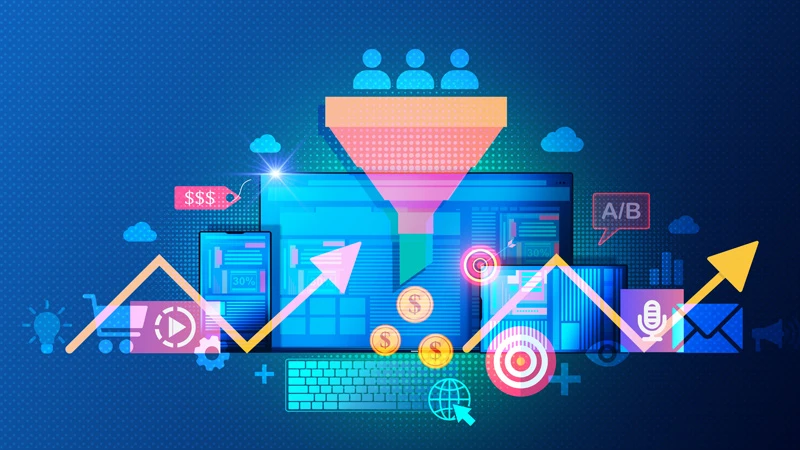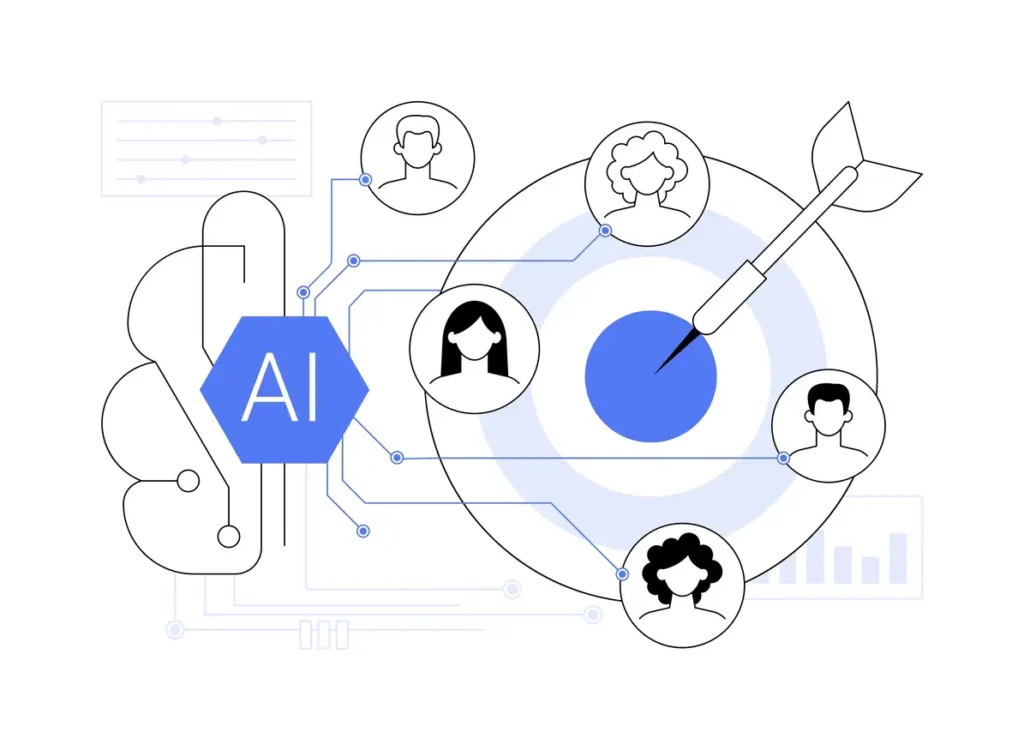Open Effectiveness and Development With AI Automation for B2B Business
AI automation is changing the landscape for B2B firms. It minimizes and streamlines operations reliance on human intervention. This shift enables services to make quicker, data-driven choices. As companies check out which refines to automate, they should likewise take into consideration the right tools to implement. Difficulties remain in embracing AI technology. The ramifications of these adjustments might shape the future of several business in methods yet to be totally comprehended
Understanding AI Automation in the B2B Context
As companies progressively seek performance, understanding AI automation in the B2B context ends up being important. AI automation includes using innovative modern technologies to streamline procedures, reduce human intervention, and improve decision-making processes. In the B2B landscape, this can materialize in different types, such as automating customer support interactions, managing supply chain logistics, or optimizing marketing campaigns. Companies can take advantage of AI to evaluate large datasets quickly, allowing them to recognize trends and understandings that inform critical choices. Additionally, AI systems can incorporate effortlessly with existing technologies, giving a cohesive system for managing service features. This understanding prepares for companies to discover how AI can transform their procedures, improve performance, and eventually foster lasting growth in an open market.
Secret Advantages of Implementing AI Automation

Identifying Procedures Ideal for Automation

Picking the Right AI Tools for Your Company
When B2B firms consider automating their processes, picking the best AI devices comes to be vital for accomplishing wanted outcomes. Business need to begin by assessing their special demands and purposes, guaranteeing positioning with organization goals (Minarik AI). Evaluating the combination, adaptability, and scalability capabilities of possible devices is critical, as these aspects identify long-lasting effectiveness. Organizations ought to additionally consider user-friendliness and the level of assistance given by vendors, as these aspects can influence effective application. In enhancement, evaluating client evaluations and study can provide understandings into exactly how certain AI solutions do in real-world situations. By diligently choosing AI devices that fit their functional needs, B2B firms can enhance efficiency and drive development while lessening potential disruptions
Getting Rid Of Challenges in AI Adoption
B2B business commonly encounter significant challenges in adopting AI technologies, especially problems associated to information top quality and resistance to change monitoring. Poor information top quality can hinder the efficiency of AI systems, while worker unwillingness to embrace brand-new procedures can stall implementation initiatives - AI Automation For B2B. Attending to these obstacles is crucial for effective AI integration and maximizing its possible advantages
Information Quality Issues
Guaranteeing high information high quality is important for the effective fostering of AI innovations in business-to-business environments. Inaccurate, insufficient, or outdated information can badly hinder AI initiatives, leading to wrong insights and inadequate decision-making. Business often encounter challenges such as data silos, variances across various sources, and an absence of standardized data layouts. To get rid of these issues, companies need to buy data cleaning, integration, and administration processes. Carrying out robust data monitoring methods assures that the info fed into AI systems is trusted and pertinent. Fostering a culture of information top quality awareness among workers can boost data accuracy over time. By attending to information quality issues, B2B business can launch the full potential of AI automation, driving efficiency and growth.
Modification Monitoring Resistance

Determining the Impact of AI Automation
Gauging the effect of AI automation in B2B firms calls for a clear understanding of key performance signs (KPIs) that straighten with company objectives. Reliable information evaluation techniques are crucial for interpreting the outcomes, while robust ROI assessment approaches assist determine the monetary benefits of automation initiatives. With each other, these components provide an extensive structure for examining AI's payments to organizational success.
Trick Efficiency Indicators
Secret efficiency indications (KPIs) serve as important devices for B2B companies to examine the effectiveness of AI automation initiatives. By developing clear metrics, organizations can determine improvements in operational performance, cost reduction, and profits growth directly attributable to automation. Usual KPIs include cycle time reduction, error prices, client fulfillment ratings, and worker performance degrees. These indicators supply understandings into how AI systems are maximizing procedures and enhancing general efficiency. In addition, tracking KPIs enables companies to recognize locations for further improvement and to align AI automation initiatives with tactical service purposes. Ultimately, a distinct structure of KPIs guarantees that B2B business can quantitatively review the impact of AI automation on their procedures and drive constant development.
Information Analysis Techniques
Effective data evaluation methods play a vital duty in reviewing the impact of AI automation within B2B companies. By utilizing statistical methods, organizations can determine patterns and patterns in operational data, enabling them to evaluate the effectiveness acquires accomplished with automation. Methods such as regression evaluation and time series forecasting provide insights right into how AI-driven processes influence performance and decision-making. In addition, information visualization tools can successfully interact findings to stakeholders, assisting in informed tactical choices. Artificial intelligence algorithms can additionally boost evaluation by forecasting future results based on historic information, providing actionable understandings. Eventually, these methods enable B2B companies to gauge success and enhance their AI automation initiatives, ensuring placement with service goals and enhancing total performance.
ROI Analysis Methods
Assessing the roi (ROI) of AI automation is essential for B2B firms looking for to understand the economic ramifications of their technical efforts. Firms can utilize various ROI analysis techniques to determine the efficiency of AI executions - Growth Systems For B2B. One effective technique involves determining expense financial savings by comparing functional expenses before and after automation (Minarik AI). Furthermore, measuring performance enhancements via crucial performance indications (KPIs) helps quantify the advantages of AI. Client complete satisfaction metrics can additionally supply understandings into the impact of automation on solution quality. To assure a complete assessment, business should think about both direct monetary returns and abstract benefits, such as boosted decision-making abilities and affordable advantage. This diverse analysis allows B2B firms to make informed decisions pertaining to future investments in AI innovation
Future Fads in AI Automation for B2B Companies
What advancements exist ahead for AI automation in B2B business? Arising fads indicate a considerable change in the direction of enhanced data analytics capacities, enabling companies to make even more enlightened choices. Predictive analytics will end up being progressively essential, allowing business to expect market adjustments and consumer demands. Additionally, the integration of AI with Web of Points (IoT) modern technology is anticipated to enhance procedures by giving real-time understandings and automation of processes. Firms will certainly also concentrate on enhancing client experiences with customized advertising driven by AI formulas. Additionally, innovations in all-natural language handling will certainly assist in much better communication between businesses and clients. As these trends advance, B2B firms have to adjust to take advantage of AI automation efficiently, guaranteeing sustained development and competitive advantage.
Often Asked Concerns
What Industries Benefit one of the most From AI Automation in B2B?
Production, financing, healthcare, and logistics sectors profit the most from AI automation in B2B. These markets take advantage of AI to maximize processes, enhance decision-making, and boost general operational performance, driving substantial growth and innovation.
Just How Does AI Automation Effect Employee Responsibilities and Responsibilities?
AI automation reshapes employee roles and responsibilities by simplifying repeated tasks, making it possible for workers to concentrate on tactical campaigns. This change promotes skill advancement, enhances efficiency, and encourages cooperation, ultimately driving business development and development.
What Are Usual False Impressions About AI Automation in B2B?
Usual misunderstandings concerning AI automation in B2B include concerns of job loss, ideas that AI can fully change human judgment, and ignoring the value of collaboration between AI systems and staff members for optimal outcomes.
How Can Companies Make Sure Information Personal Privacy With AI Automation?
Organizations can guarantee data privacy with AI automation by carrying out durable security methods, sticking to regulatory compliance, conducting regular audits, and training employees on data managing practices to minimize risks and protect sensitive information.
What Are the Expenses Connected With Applying AI Automation?
The costs linked with implementing AI automation include software application purchase, infrastructure upgrades, training personnel, ongoing upkeep, and possible downtime throughout assimilation. Furthermore, companies may sustain expenditures connected to information protection and conformity steps.
Gauging the influence of AI automation in B2B business requires a clear understanding of key efficiency signs (KPIs) Read Full Report that line up with business purposes. Secret efficiency indications (KPIs) offer as crucial devices for B2B companies to assess the performance of AI automation efforts. Effective information evaluation techniques play an important role in reviewing the effect of AI automation within B2B companies. Reviewing the return on investment (ROI) of AI automation is vital for B2B companies looking for to understand the economic ramifications of their technical efforts. What innovations exist ahead for AI automation in B2B firms?